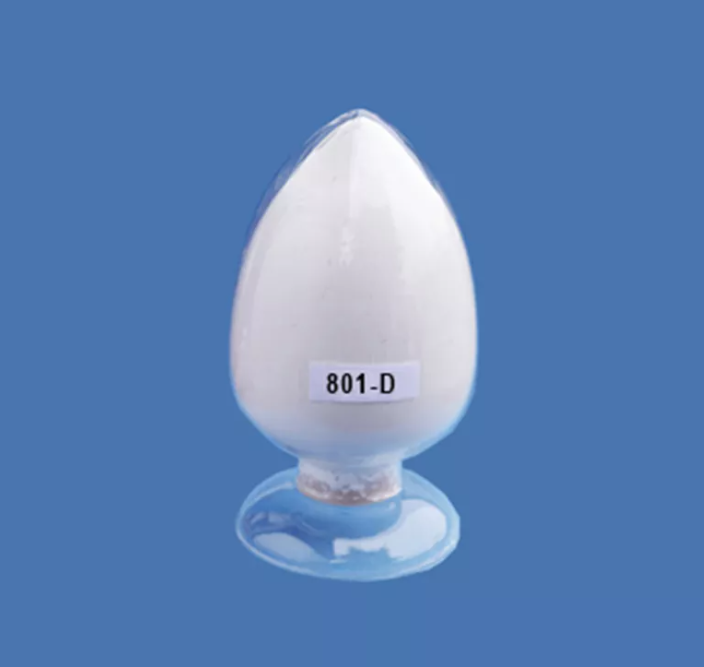Is your bentonite clay still good to use? While this versatile material is widely used in industries from cosmetics to construction, it can lose its effectiveness if not stored properly. In this post, we’ll discuss whether bentonite clay can expire, how to store it correctly, and signs that indicate it has gone bad. You'll also learn about its many uses in various fields.
What is Bentonite Clay?
Bentonite clay is a natural material formed from volcanic ash. It's packed with minerals like calcium, magnesium, and potassium. These minerals give the clay its unique properties, such as a high adsorption capacity. This means it can attract and bind to toxins and impurities.
Types of Bentonite Clay
There are two main types of bentonite clay:
Calcium Bentonite: Often used in skincare and detox products, it’s known for its ability to absorb oils and toxins.
Sodium Bentonite: Common in industrial applications, especially for sealing and drilling.
Bentonite's ability to absorb and cleanse makes it valuable across many industries, from cosmetics to construction. It plays a crucial role in various processes, including skin care, medicine, and industrial operations.
Does Bentonite Clay Expire?
Can Bentonite Clay Go Bad?
Bentonite clay is a natural, stable material. However, like any product, it can lose its effectiveness if not stored correctly. While it doesn't spoil like food, exposure to moisture or air can affect its quality. Improper storage can make it less effective or even unusable for some purposes.
Signs of Expired Bentonite Clay
Here are some clear signs that your bentonite clay has expired or is no longer effective:
Change in Color: Fresh bentonite clay usually appears gray or cream. If it becomes darker or discolored, it might not work as intended.
Odor: Bentonite clay should have no strong smell. A sour or rancid odor is a sign it has absorbed moisture or contaminants.
Clumping: If the clay forms hard clumps that can't be easily broken apart, it likely absorbed moisture, rendering it unusable.
Always check for these signs before using your bentonite clay to ensure it's still good.
How Long Does Bentonite Clay Last?
The shelf life of bentonite clay can vary based on how it's stored. Typically, dry bentonite clay can last for several years if kept in the right conditions—up to 2-3 years. However, once it’s hydrated or mixed with other ingredients, it should be used more quickly.
Powdered Bentonite Clay
When stored in an airtight container in a cool, dry place, powdered bentonite clay can last indefinitely. Proper storage helps maintain its effectiveness for years without significant degradation.
Hydrated Bentonite Clay
Once bentonite clay is mixed with water or added to a product, its shelf life becomes much shorter. It should be used within 3-6 months to ensure maximum effectiveness.

Proper Storage Tips for Bentonite Clay
Ideal Storage Conditions
To keep your bentonite clay fresh and effective for as long as possible, follow these tips:
Store in a Cool, Dry Place: Avoid humidity and heat, as these conditions can cause the clay to harden or degrade.
Airtight Containers: Always use airtight containers to protect bentonite clay from moisture, odors, and contamination.
Avoid Direct Sunlight: Sunlight can change the properties of the clay. Store it in a dark place to preserve its effectiveness.
What to Avoid When Storing Bentonite Clay
Moisture: Never expose bentonite clay to water. It can cause clumping or solidification, making it unusable.
Contaminants: Keep the clay away from strong-smelling substances, as it can absorb odors from its surroundings.
How to Revive Dry Bentonite Clay
If your bentonite clay has dried out or become too hard, don’t throw it away just yet! You can try to revive it with these simple steps:
Add Water: Pour a small amount of water onto the clay. Mix carefully until it starts to soften.
Let it Sit: Allow the clay to sit for a few hours to fully rehydrate.
Check Consistency: Once it reaches a smooth, workable texture, it’s ready to use again.
If this method doesn’t work, the clay may no longer be usable and should be discarded.
Is It Safe to Use Expired Bentonite Clay?
Patch Testing for Expired Bentonite Clay
Before using expired bentonite clay on your skin or ingesting it, it's a good idea to perform a patch test. Here’s how:
Apply a small amount of the clay to a discreet area, like your wrist or behind your ear.
Leave it on for 30 minutes to an hour.
If you notice any irritation or a rash, it’s best to discard the clay.
For internal use, consult a healthcare professional before consuming expired bentonite clay. It may cause discomfort or other digestive issues, so always be cautious.
Uses of Bentonite Clay
Cosmetic and Skincare Applications
Bentonite clay is a popular ingredient in skincare due to its oil-absorbing and impurity-removing properties. Some common uses include:
Face Masks: It draws out toxins and impurities, helping to reduce acne and oily skin.
Exfoliants: Used in scrubs, it removes dead skin cells and cleanses pores.
Hair Treatments: Cleanses and detoxifies the scalp by removing oils and product buildup.
Industrial Applications
Beyond cosmetics, bentonite clay has several industrial uses:
Drilling Fluids: In oil and gas drilling, it lubricates the drill bit and stabilizes the borehole.
Foundry Sands: Mixed with sand in the foundry industry to create molds for metal casting.
Sealants: Sodium bentonite is used as a sealant in construction, particularly for sealing ponds, landfills, and roads. Its swelling ability when mixed with water makes it highly effective.
Other Uses of Bentonite Clay
Bentonite clay also serves in other important areas:
Detoxification: Often ingested to help remove toxins, heavy metals, and impurities from the body.
Water Filtration: Used to purify water by removing contaminants like pesticides and chemicals.
Animal Feed Additive: In some livestock industries, bentonite clay is added to animal feed to improve digestion and detoxify.
Final Thoughts
Bentonite clay is highly versatile in cosmetics, healthcare, and industry. Proper storage is key to maintaining its effectiveness. If it shows signs of expiration, replace it. Always store your bentonite clay correctly to preserve its quality for both personal and industrial use.
Qinghong offers a wide range of high-quality organic bentonite clay. Feel free to contact us for more information.
FAQs
Q: Can bentonite clay go bad?
A: Bentonite clay can lose its effectiveness over time, especially if not stored properly. It doesn't spoil like food but may degrade when exposed to moisture or air.
Q: How do I store bentonite clay?
A: Store bentonite clay in an airtight container, in a cool, dry place, away from moisture and sunlight to extend its shelf life.
Q: Is it safe to use expired bentonite clay?
A: It’s best to perform a patch test before using expired bentonite clay on your skin. For internal use, consult a healthcare professional.
Q: How long does bentonite clay last?
A: Dry bentonite clay can last for years if stored properly. Once hydrated, it should be used within 3-6 months.










